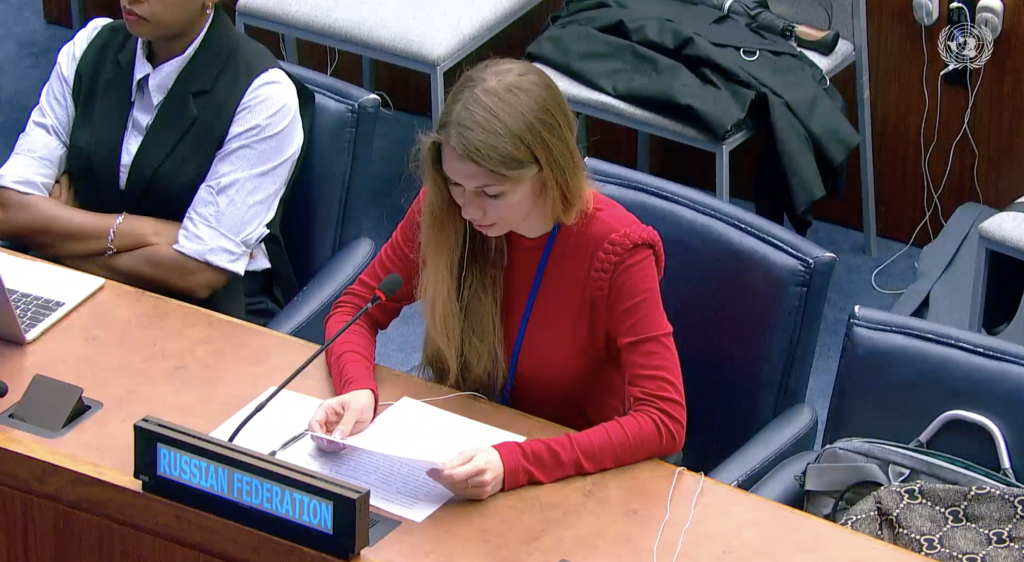Statement by Representative of the Russian Federation Ms.Irina Tyazhlova at the Seventh session of the UN Open-Ended Working Group on security of and in the use of ICTs 2021-2025 under agenda item “How international law applies to the use of ICTs by States”
Mr. Chair,
The information environment enjoys unique technical and legal features that do not allow for the automatic and full application of the existing norms of international law to it. These include, in particular, the cross-border and pervasive nature of ICTs, the anonymity of their use and the difficulty of reliable identification of sources of malicious activities, the possibility of embedding harmful hidden functions, as well as hardware and software vulnerabilities, the possibility of dual-use of ICTs.
In these circumstances, a comprehensive solution to the issue of international legal regulation in information space is required. The long-standing debate on this topic has so far revealed a common understanding only on the applicability of universally accepted principles of international law to the ICT domain. These include, primarily, sovereign equality, non-use of force and threat of force, respect for the territorial integrity of States, settlement of international disputes by peaceful means, non-interference in internal affairs, fulfillment in good faith of obligations under international law and interstate cooperation.
At the same time, there are no clear mechanisms agreed upon by the international community for applying even these basic principles in information space. It is obvious that there are many “gaps” in international law in relation to this sphere. The idea echoed by a number of States that the existing norms fully apply and suffice for regulating the digital environment is just untenable. This is also confirmed by thematic events involving academia, such as those organized by the United Nations Institute for Disarmament Research (UNIDIR). In this regard, the consideration of specific scenarios may have some added value – it will clearly demonstrate that it is impossible to comprehensively regulate information space on the basis of the existing norms.
We are convinced that the only way to fill the gaps in international law consists in its progressive development through the elaboration of new norms that would take into account the specifics of ICTs. It is best to work towards the development of a universal legally binding instrument. This is the only manner to ensure exclusively peaceful use of ICTs and prevention of conflicts in this sphere. In our view, the OEWG could contribute to this effort by discussing and agreeing upon the elements of a future international treaty. As a prototype of such, Russia, together with a group of countries, presented a concept of the UN convention on ensuring international information security. We dwelled upon it in detail within the discussion on rules, norms and principles of States’ behavior. The document was published at the OEWG website and is open for discussion. The adoption of such a universal agreement would not only formalize, from a legal point of view, the rights and obligations of States related to their activities in information space, but also settle the issue of political attribution of computer attacks in international relations. It would ensure strict compliance with the fundamental principle of the UN Charter – sovereign equality of States – in information space, which at this stage is openly ignored by many technologically advanced countries.
Thank you for your attention.
